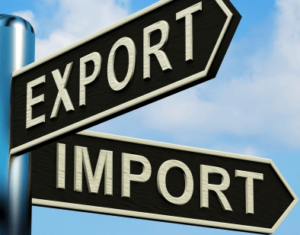Ghana urged to investigate trade misinvoicing which cost the country $40 billion in 52 years
 From 1960 to 2012, Ghana lost about $40 billion as a result of under-invoicing of exports and over-invoicing of imports, and Ghana has been urged to investigate the reasons for this illicit financial flows.
From 1960 to 2012, Ghana lost about $40 billion as a result of under-invoicing of exports and over-invoicing of imports, and Ghana has been urged to investigate the reasons for this illicit financial flows.
According to a report by the Washington-based Global Financial Integrity (GFI) on trade misinvoicing in Ghana during the period, there was a total of 19.4 billion outflows, about 3.7 per cent of GDP and 7.1 per cent of total trade, while inflows amounted to $20.6 billion, 3.7 per cent of GDP and 7.1 per cent of total trade.
Globally, exports and imports are deliberately misinvoiced to avoid payment of duties and to take advantage of government incentives, and GFI estimates that $1 trillion moves out of developing countries annually, to western economies.
“This is in our judgment the most damaging economic condition hurting poverty alleviation and sustainable growth for billions of people.”
Import duties, according to the report, averaged 16.4 per cent of Ghana’s total tax revenues from 1994 to 2008.
While admitting that there are often statistical errors with trade data, the report finds “significant deviations” between trade data reported by Ghana’s customs and the Bank of Ghana on one hand, and the trade data reported by partner countries to the IMF.
Ghana lost a total of $29.913 million from under-invoicing of exports from 2010 to 2012.
Ghana’s most under-invoiced commodity exports to the United States within the period were cocoa beans, wood, petroleum products and cocoa powder.
The loss from under-invoicing of cocoa beans amounted to $14,587,356 and exceeded by two times, the loss from under-invoicing of all other exports.
Loss from under-invoicing of wood was $10,760,680; petroleum products $2,063,648; cocoa powder $1,821,672; and other exports, $5,450,669.
The total loss from over-invoicing of exports amounted to $16.425 million.
GFI recommends that Ghana rationalize the complex system of tax policies, tariff exemptions and differential rates which it believes often have little rational basis.
It also made the observation that an improvement in the performance of customs after the IMF Enhanced Structural Adjustment Programme in 1999, was not sustained, suggesting the need for targeted structural performance criterion at the Ghana Revenue Authority.
The GFI also called on the Ghana government to investigate the reasons for the apparent deviations from world market norms.
By Emmanuel Odonkor
